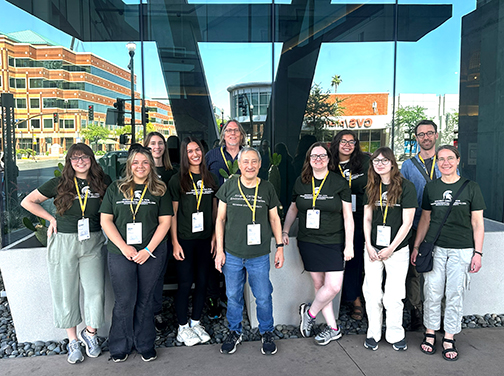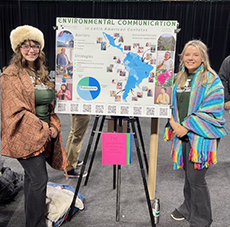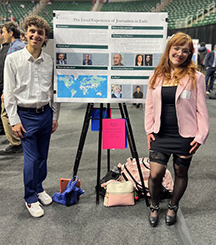
MSU’s Knight Center for Environmental Journalism delegation
Michigan State’s delegation to the 2025 Society of Environmental Journalists conference in Tempe, Arizona, consisted of undergraduate and grad students, faculty members and alumni, including Knight Center founder Jim Detjen and current director Eric Freedman.
The conference – SEJ’s 35th – was hosted by Arizona State University and focused on the theme “Heat, Water and Growth: Confronting the Past, Surviving the Future.” Despite the proliferation of cacti and daytime temperatures in the low 90s, the workshops, panels and presentations were highly relevant to issues in the Great Lakes, including mining, public lands, Indigenous lands, biodiversity, extreme weather, climate change and pollution.
Our student team members were Anna Barnes, Julia Belden, Isabella Figueroa, Clara Lincolnhol, Mia Litzenberg, Shea Paulis and Ruth Thornton.
Great Lakes Echo editor Jeff Brooks-Gillies and Knight Center master’s alumni Kelly House of Bridge Michigan and Kurt Williams of Oregon State University’s Veterinary Diagnostic Laboratory rounded out the team.
Detjen was SEJ’s first president.
 The Michigan Press Association has named three Great Lakes Echo writers as winners in its college newspaper competition for stories published in 2024:
The Michigan Press Association has named three Great Lakes Echo writers as winners in its college newspaper competition for stories published in 2024:




